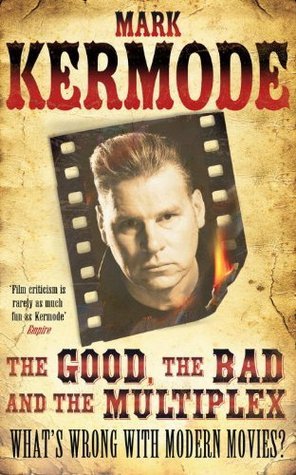What do you think?
Rate this book


328 pages, Paperback
First published August 31, 2011

Apparently Marlon liked Richard [Stanley, the director], but when when co-star Val 'Boring' Kilmer got him fired for being weird, Brando carried on picking up the pay cheques and enjoying the catering whilst wearing an ice bucket on his head. (Don't take my word for it; watch the film. No, on second thoughts, just take my word for it.) Too lazy to learn his lines, Brando insisted on wearing (along with the ice bucket) an earpiece through which a script assistant could prompt his slurred speech, a trick he'd learned on The Formula. Unfortunately, according to co-star David Thewlis, Brando's earpiece also picked up police radio transmissions, which caused Dr Moreau to observe thoughtfully that a robbery was taking place at Woolworths in the middle of a meaningful soliloquy.
Here are three absolute truths:
1. The world is round.
2. We are all going to die.
3. No one enjoyed Pirates of the Caribbean: At World's End.
Oh, I know loads of people paid to see POTC3 (as I believe it is known in the industry). And some of them may claim to have enjoyed it. But they didn't. Not really. They just think they did. As a film critic, an important part of my job is explaining to people why they haven't actually enjoyed a movie even if they think they have. In the case of POTC3, the explanation is very simple.
It's called "diminished expectations".
the cinematic equivalent of long-term deprivation of the basics of a civilised existence. They are the multiplex dwellers who have become used to living in the cultural freezing cold, whose brains have been addled by poisonous celluloid asbestos, and whose expectations of mainstream entertainment have been gradually eroded by leaky plumbing and infestations of verminous pests.
They are the Audiences of the Apocalypse.
I don't think critics should do the job of telling you which movies to watch. Or what you should think about them. No, I think critics should do the job of watching all the movies and then telling you what they think about them in a way which is honest, engaging, erudite and (if you're lucky) entertaining.
1) No, you can't have any more money.
2) No, the movie doesn't need to be that long.
3) Yes, you do have to have either an exploding helicopter or at least one scene in a strip club.
4) After that, you’re on your own - knock yourself out.
Corman believed that the best way to encourage new film-making talent was to find people who loved avant garde international cinema and were desperate to be the next Ozu, Fellini or Antonioni, and then set them to work making Carnosaur 2.
The problem with movies today is not that "real" cinema-goers love garbage while critics only like poncy foreign language arthouse fare. The problem is that we've all learned to tolerate a level of overpaid, institutionalised corporate dreadfulness that no one actually likes but everyone meekly accepts because we've all been told that blockbuster movies have to be stupid to survive. Being intelligent will cause them to become unpopular. Duh! The more money you spend, the dumb and dumberer you have to be. You know the drill: no one went broke underestimating the public intelligence. That's just how it is, OK?
Well, actually, no. You want proof? OK. Exhibit A: Inception.